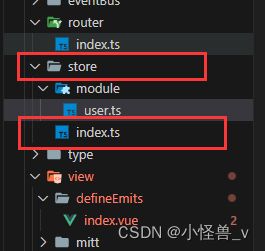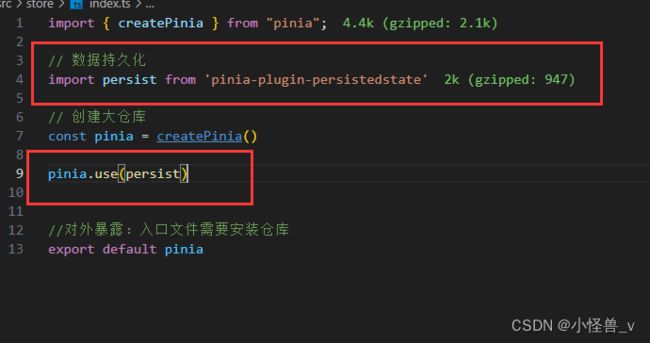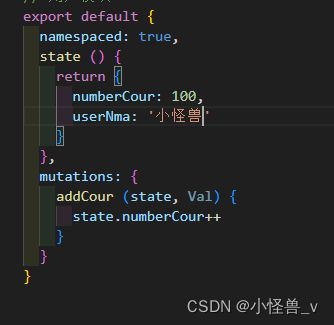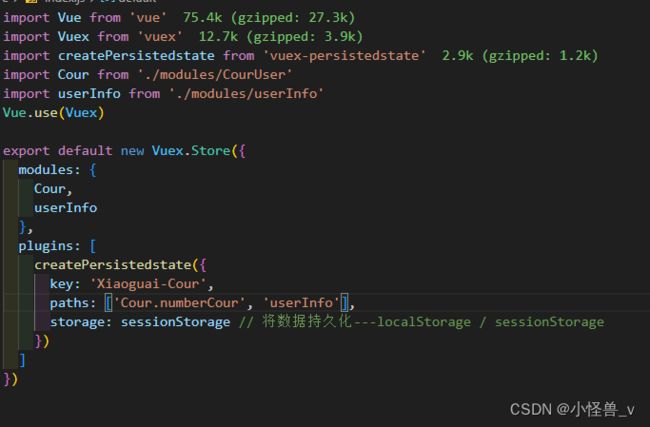- SQL笔记9.嵌入式SQL
笑神552
sql
SQL嵌入到其它语言中,这个时候编译需要其他方法1.扩充主语言编译系统,使之能够处理SQL语句2.预处理:在编译前先扫描源程序,将SQL语句翻译成目标(或主语言程序)过程代码,并将SQL执行翻译成主语言的过程调用预处理后的源程序再交给诸语言的编译系统处理在使用时,所有的SQL语句都要加EXECSQL在前面,后面PL/1,C时,用;,COBOL用END-EXEC通信:1.SQLCODE这是一个整型变
- 打造卓越工程:工程管理工具如何重塑工作流程
团队协作工具
板栗看板作为一款工程管理软件,在项目管理、任务协同、知识笔记以及个人待办等多个方面展现出其独特的优势。以下是对板栗看板在工程管理方面的详细分析:一、核心功能任务可视化管理○板栗看板采用可视化的看板系统,用户可以将任务以卡片的形式展示在看板上,并轻松拖动卡片以显示任务的不同状态(如“待办”、“进行中”、“已完成”等)。○每个任务卡片都可以包含详细的描述、责任人、截止日期、优先级等关键信息,使得团队成
- Next.js 开发指南 实战篇 | React Notes | 侧边栏笔记列表
人工智能_SYBH
课程推荐javascriptreact.js笔记Next.js实战前端框架开发语言
Next.js开发指南-冴羽-掘金小册前言本篇我们来实现ReactNotes的左侧侧边栏部分。SidebarNoteList现在我们接着完善笔记列表,毕竟笔记列表这里还要实现展开和收回功能:修改components/SidebarNoteList.js代码:jsx复制代码importSidebarNoteItemfrom'@/components/SidebarNoteItem';exportde
- 【随手笔记】嵌入式项目开发流程(欢迎指正补充)
LongRunning
笔记笔记单片机
1.产品需求-竞品分析一般研发的需求都是市场部或者高层评估过利润和销量或者前景才会到研发的研发开始研究需求,分析竞品优缺点,一般会选用竞品前三名的产品进行分析分析竞品的功能,竞品的硬件方案和物料成本,功能优点和缺点,把硬件成本给到市场,为后面做的产品硬件成本做参考,避免后面硬件方案价格无优势的情况进行产品功能细致的梳理和过滤确定好规格性能参数等等查询对应的强制标准或行业标准考虑功能异常的补救逻辑项
- SQL笔记#数据更新
月吟荧静
SQL笔记sql笔记数据库
一、数据的插入(INSERT语句的使用方法)1、什么是INSERT首先通过CREATETABLE语句创建表,但创建的表中没有数据;再通过INSERT语句向表中插入数据。--创建表ProductInsCREATETABLEProductIns(product_idCHAR(4)NOTNULL,product_nameVARCHAR(100)NOTNULL,product_typeVARCHAR(32
- 【Multipath网络层协议】MPTCP工作原理
码上为赢
Multipath精通之路multipathMPTCP
常见网络层多路径协议介绍MPTCP(MultipathTCP)MPTCP是在传统TCP基础上进行扩展的协议,它允许在源端和目的端之间建立多个TCP子流,这些子流可以通过不同的网络路径传输数据。例如,一台笔记本电脑同时连接了Wi-Fi网络和以太网网络,当使用MPTCP进行数据传输时,它可以将数据分别通过Wi-Fi和以太网这两条不同的路径发送到目标服务器,从而充分利用两条链路的带宽。LISP(Loca
- 【目录】PMP项目管理—基础认知篇—十五至尊图
洛北辰南
PMPPMP项目管理目录
笔者已经3A通过PMP考试,近期抽空会把上网课记录的笔记腾到博客中,以此文为目录链接全部内容,欢迎订阅关注。已整理完成基础认知篇、整合管理篇。持续更新中…知识领域启动过程组规划过程组执行过程组监控过程组收尾过程组项目整合管理4.1制定项目章程4.2制定项目管理计划4.3指导和管理项目工作4.4管理项目知识4.5监控项目工作4.6实施整体变更控制4.7结束项目或阶段项目范围管理5.1规划范围管理5.
- 一学就会:A*算法详细介绍(Python)
不去幼儿园
人工智能(AI)#启发式算法算法python人工智能机器学习开发语言
本篇文章是博主人工智能学习以及算法研究时,用于个人学习、研究或者欣赏使用,并基于博主对相关等领域的一些理解而记录的学习摘录和笔记,若有不当和侵权之处,指出后将会立即改正,还望谅解。文章分类在启发式算法专栏:【人工智能】-【启发式算法】(6)---《一学就会:A*算法详细介绍(Python)》一学就会:A*算法详细介绍(Python)目录A*算法介绍A*算法的核心概念A*算法的特点A*算法示例:迷宫
- 如何使用Python编程实现捕获笔记本电脑麦克风的音频并通过蓝牙耳机实时传输
winfredzhang
python音视频实时传输蓝牙耳机
在现代的工作和生活环境中,音频传输的需求日益增加。无论是远程会议、在线教育,还是家庭娱乐,音频的实时传输都扮演着至关重要的角色。今天,我将向大家介绍一个简单而实用的应用程序,它能够捕获笔记本电脑麦克风的音频,并通过蓝牙耳机实时传输。这款应用程序特别适用于需要在会议室等场景中远程听取声音的情况。接下来,我将详细讲解这个应用程序的实现过程,并提供完整的代码和使用指南。引言想象一下这样的场景:你需要离开
- 坚持学习100天:MFC多线程开发
smile- sunshine
编程语言C++笔记mfc学习c++
前言Hello,我是修齊。学习C++的第一百零二十六天,5.18的今天,520快到了,要去花店买两朵玫瑰,用心学习。在这里记录一些学习的东西和学习的心情,内容主要是一些自己学习整理的小笔记。一、类CWinThread1.MFC,用类CWinThread的对象来表示一个线程,每个MFC程序的主线程都有一个继承自CWinApp的应用程序类,而CWinApp继承自CWinThread。2.类CWinTh
- Farm3D- Learning Articulated 3D Animals by Distilling 2D Diffusion论文笔记
Im Bug
3d论文阅读
Farm3D:LearningArticulated3DAnimalsbyDistilling2DDiffusion1.Introduction最近的研究DreamFusion表明,可以通过text-imagegenerator提取高质量的三维模型,尽管该生成模型并未经过三维训练,但它仍然包含足够的信息以恢复三维形状。在本文中,展示了通过文本-图像生成模型可以获取更多信息,并获得关节模型化的三维对
- (自用记录)笔记本更换非系统盘D盘硬盘
吕諹
电脑
笔记本有两个硬盘位,都有原装的512G的硬盘。由于本人爱好玩游戏又不喜欢往C盘里塞东西,所以游戏文件都在D盘,再加上平常娱乐和学习使用的软件,D盘空间只剩十多个G,于是买了个2T的西数SN850X硬盘准备替换原装D盘位置,在站内看了很多基本都是迁移系统盘的教程,本人是小白没有经验也不敢轻易尝试,不知道更换非系统盘和系统盘有什么区别,在询问朋辈后才了解到用diskgenius操作大同小异且更简单易行
- 【GO】学习笔记
勤不了一点
GOgolang学习笔记go
目录学习链接开发环境开发工具GVM-GO多版本部署GOPATH与go.modgo常用命令环境初始化编译与运行GDB--GNU调试器基本语法与字符类型关键字与标识符格式化占位符基本语法初始值&零值&默认值变量声明与赋值_下划线的用法字符类型const常量字符串类型转换与判断指针值类型和引用类型复杂数据类型数组:一个由固定长度的特定类型元素组成的序列切片(Slice):动态序列链表(list):没有元
- 【C++】探索Vector:灵活的数据存储解决方案
星霜旅人
C++c++
什么都无法舍弃的人,什么也改变不了。前言这是我自己学习C++的第六篇博客总结。后期我会继续把C++学习笔记开源至博客上。上一期笔记是关于C++的string类知识,没看的同学可以过去看看:【C++】代码森林中的STL宝藏工具箱---string类_c++工具箱-CSDN博客https://blog.csdn.net/hsy1603914691/article/details/143967928?s
- 小巧免费的笔记本电池检测工具
ITdgr
电脑
BatteryInfoView是一款免费的笔记本电池检测软件,适用于笔记本电脑和上网本。该软件能够提供电池的详细信息,包括电池名称、制造商名称、序列号、制造日期、电源状态(充电/放电)、当前电池容量、完全充电容量、设计容量、充电放电比率以及电池温度等。用户可以通过BatteryInfoView全面了解自己笔记本电池的状态,例如电池的健康度、损耗度等信息,这些数据对于电池管理和维护非常有帮助。此外,
- 使用内置命令查看笔记本电池健康状态
jay丿
电脑单片机嵌入式硬件
如何使用powercfg/batteryreport命令查看笔记本电池健康状态在Windows系统中,了解笔记本电池的健康状态对于维护电脑性能和预测电池寿命至关重要。Windows10和Windows11系统提供了一个内置命令powercfg/batteryreport,可以生成一份详细的电池使用情况报告,帮助我们评估电池的健康状态。以下是使用此命令的详细教程:一、打开命令提示符快捷键打开:按下键
- 1-5.WPS JS宏对象的属性、方法、集合---学习笔记
爱上妖精的尾巴
WPSJS宏编程教程学习笔记wps笔记jsjavascript开发语言学习
每个对象都有属性与方法。比如人就是一个对象,而人的手或脚就可以看做是人对象下的子对象。人的身高、体重就是属性。而人在吃、喝、拉、撒、睡就是方法(动作)。而多个对象就可以形成集合,比如一屋子人。在JS中,也是万物皆对象。比如JS中的字符串、数组、函数等都是对象。这些对象都有自己的属性与方法,后面在对应的章节中都有讲解。而在WPS表格,也有很多对象,比如WPS表格程序就是最大的对象,再比如WPS的工作
- 大模型专栏博文汇总和索引
Donvink
大模型transformer深度学习人工智能语言模型
大模型专栏主要是汇总了我在学习大模型相关技术期间所做的一些总结和笔记,主要包括以下几个子专栏:DeepSeek-R1AIGC大模型实践Transformer多模态系统视频理解对比学习目标检测目标跟踪图神经网络大模型专栏汇总了以上所有子专栏的论文,目前暂时先按照不同的技术领域划分子专栏,子专栏之间的内容可能会有交集,不完全是独立的。为了方便查阅相关模块的内容,故以此文章进行汇总与索引。一、DeepS
- Spring 学习笔记(一)Spring两大核心技术IOC控制反转/DI依赖注入和AOP面向切面 案例 | 优化传统的Web开发 | MVC架构DAO层与Service层之间的解耦
「已注销」
#SSMSpring
文章目录参考资料运行环境一、Spring概述1.1Spring产生背景1.2两大核心技术IOC/DI+AOP二、Spring核心技术2.1IOC/DI2.1.1案例:IOC实现解耦2.1.2IOC/DI使用总结2.2AOP2.2.1案例:AOP实现日志打印2.2.2AOP使用总结:三、总结参考资料SPOC运行环境windows10IDEA2021.1专业版JDK8Spring-5.0.5一、Spr
- 记录海尔7G笔记本电脑 实现无桌面纯命令行安装debian12 系统并息屏
debian笔记本电脑
海尔7G笔记本电脑,十几年前的一台笔记本,想在家当服务器用。为了省电,我没有安装桌面,用的是纯命令行模式。通过网上查询各种文章大模型等等方式,最终找到了解决方案。使用vbetool(VESA电源管理)vbetool是一个用于控制VESABIOSExtension(VBE)的工具,主要用于Linux系统中管理显示器的电源状态。通过vbetool,用户可以关闭或开启显示器的电源,从而实现对显示器电
- sqlite 安装 可视化笔记
AI算法网奇
python宝典sqlite笔记数据库
目录免费可视化工具:python安装免费可视化工具:SQLiteStudio(免费)DBBrowserforSQLite(免费)实用的SQLite数据库可视化管理工具推荐_sqllite工具-CSDN博客python安装pipinstallpysqlite3,这个有的电脑报错,dll找不到。在网址SQLiteDownloadPage下载
- AI探索笔记:浅谈人工智能算法分类
安意诚Matrix
机器学习笔记人工智能笔记
人工智能算法分类这是一张经典的图片,基本概况了人工智能算法的现状。这张图片通过三个同心圆展示了人工智能、机器学习和深度学习之间的包含关系,其中人工智能是最广泛的范畴,机器学习是其子集,专注于数据驱动的算法改进,而深度学习则是机器学习中利用多层神经网络进行学习的特定方法。但是随着时代的发展,这张图片表达得也不是太全面了。我更喜欢把人工智能算法做如下的分类:传统机器学习算法-线性回归、逻辑回归、支持向
- AI笔记——浅谈发展历程
Bqiuer
AIAI笔记人工智能ai
2023年,要说最让人震惊的热点,无疑就是AI技术的大爆发!从1950年的“图灵测试”标志着人工智能雏形的诞生,一些最顶尖的技术团队、技术学科进行研究,到如今几十年的时间。一、AI的历史进程人工智能(ArtificialIntelligence,AI)的历史进程可以追溯到上世纪50年代。1950年代-1960年代:起步阶段1950年,英国数学家艾伦·图灵提出了“图灵测试”,这是第一个旨在检验机器智
- AI探索笔记:线性回归
安意诚Matrix
机器学习笔记人工智能笔记线性回归
前言写这篇博客,主要是自己来练练手。网络上教程已经是数不胜数,也都讲得非常清楚了。但自己不动手,知识和能力还是别人的。下面分别用传统方法(sklearn)和神经网络(pytorch)来解决线性回归问题。内容什么是线性回归线性回归(LinearRegression)是统计学和机器学习中最基础且广泛使用的预测模型,用于建立**自变量(输入特征)与因变量(输出目标)**之间的线性关系模型。其核心思想是通
- YOLOv11-ultralytics-8.3.67部分代码阅读笔记-results.py
红色的山茶花
YOLO笔记深度学习
results.pyultralytics\engine\results.py目录results.py1.所需的库和模块2.classBaseTensor(SimpleClass):3.classResults(SimpleClass):4.classBoxes(BaseTensor):5.classMasks(BaseTensor):6.classKeypoints(BaseTensor):7.
- Go语言学习笔记(三)
正在绘制中
Go语言学习之路golang学习笔记
文章目录十一、结构体匿名结构体匿名字段十二、方法接收器十三、接口接口实现条件空接口类型断言十四、IO操作Reader文件操作相关APIWriterbufioioutil工具包综合示例十五、包和gomod包包的引用格式gomod十一、结构体Go语言可以通过自定义的方式形成新的类型,结构体就是这些类型中的一种复合类型,结构体是由零个或多个任意类型的值聚合成的实体,每个值都可以称为结构体的成员。结构体成
- Python学习_很好的学习笔记自用
百年渔翁_肯肯
测试开发
Onthispage...(hide)1. 基本安装2. Python文档2.1 推荐资源站点2.2 其他参考资料2.3 代码示例3. 常用工具3.1 PythonIDE3.2 内置类库使用参考3.3
- 使用vim做笔记-vimtex
vimlatex
本文基本上是对HowI'mabletotakenotesinmathematicslecturesusingLaTeXandVim一文的实践操作。感谢原作者的分享。本文基础平台Windows11软件gvimSumatraPDFmiktexStrawberryperlVim插件vimtexutilsnip正文下载安装上述软件,包括gvim,SumatraPDF,miktex,Strawberrype
- 最全面的 Markdown 语法参考手册
markdown
全面掌握Markdown:本教程详细介绍了Markdown的基本语法和扩展语法,包括标题、段落、列表、代码、链接、图片等,并提供实用技巧,助您快速上手,高效创建结构化文档。无论您是编写文档、笔记、博客,还是进行内容创作,都能从中获益。同时,本手册还涵盖了CommonMark规范,助您了解Markdown的底层原理。文章目录Markdown基本语法标题(Headings)")段落(Paragraph
- 深度学习重要论文阅读笔记 ResNet (2025.2.26)
北岛寒沫
逐界星辰2025计算机科研深度学习论文阅读笔记
文章目录问题背景数据预处理神经网络模型模型性能知识点积累英语单词积累问题背景随着神经网络变得更深(层数变多),模型的训练过程也会变得更加困难。当神经网络的深度增加,就会出现梯度消失和梯度下降现象,妨碍模型的收敛。不过,这种情况可以通过归一化的模型初始化和中间的归一化层基本解决。但是,尽管在增加了归一化技术的情况下很深的神经网络可以收敛,又出现了另外一个问题,即随着模型深度的增加,模型的准确率反而下
- mysql主从数据同步
林鹤霄
mysql主从数据同步
配置mysql5.5主从服务器(转)
教程开始:一、安装MySQL
说明:在两台MySQL服务器192.168.21.169和192.168.21.168上分别进行如下操作,安装MySQL 5.5.22
二、配置MySQL主服务器(192.168.21.169)mysql -uroot -p &nb
- oracle学习笔记
caoyong
oracle
1、ORACLE的安装
a>、ORACLE的版本
8i,9i : i是internet
10g,11g : grid (网格)
12c : cloud (云计算)
b>、10g不支持win7
&
- 数据库,SQL零基础入门
天子之骄
sql数据库入门基本术语
数据库,SQL零基础入门
做网站肯定离不开数据库,本人之前没怎么具体接触SQL,这几天起早贪黑得各种入门,恶补脑洞。一些具体的知识点,可以让小白不再迷茫的术语,拿来与大家分享。
数据库,永久数据的一个或多个大型结构化集合,通常与更新和查询数据的软件相关
- pom.xml
一炮送你回车库
pom.xml
1、一级元素dependencies是可以被子项目继承的
2、一级元素dependencyManagement是定义该项目群里jar包版本号的,通常和一级元素properties一起使用,既然有继承,也肯定有一级元素modules来定义子元素
3、父项目里的一级元素<modules>
<module>lcas-admin-war</module>
<
- sql查地区省市县
3213213333332132
sqlmysql
-- db_yhm_city
SELECT * FROM db_yhm_city WHERE class_parent_id = 1 -- 海南 class_id = 9 港、奥、台 class_id = 33、34、35
SELECT * FROM db_yhm_city WHERE class_parent_id =169
SELECT d1.cla
- 关于监听器那些让人头疼的事
宝剑锋梅花香
画图板监听器鼠标监听器
本人初学JAVA,对于界面开发我只能说有点蛋疼,用JAVA来做界面的话确实需要一定的耐心(不使用插件,就算使用插件的话也没好多少)既然Java提供了界面开发,老师又要求做,只能硬着头皮上啦。但是监听器还真是个难懂的地方,我是上了几次课才略微搞懂了些。
- JAVA的遍历MAP
darkranger
map
Java Map遍历方式的选择
1. 阐述
对于Java中Map的遍历方式,很多文章都推荐使用entrySet,认为其比keySet的效率高很多。理由是:entrySet方法一次拿到所有key和value的集合;而keySet拿到的只是key的集合,针对每个key,都要去Map中额外查找一次value,从而降低了总体效率。那么实际情况如何呢?
为了解遍历性能的真实差距,包括在遍历ke
- POJ 2312 Battle City 优先多列+bfs
aijuans
搜索
来源:http://poj.org/problem?id=2312
题意:题目背景就是小时候玩的坦克大战,求从起点到终点最少需要多少步。已知S和R是不能走得,E是空的,可以走,B是砖,只有打掉后才可以通过。
思路:很容易看出来这是一道广搜的题目,但是因为走E和走B所需要的时间不一样,因此不能用普通的队列存点。因为对于走B来说,要先打掉砖才能通过,所以我们可以理解为走B需要两步,而走E是指需要1
- Hibernate与Jpa的关系,终于弄懂
avords
javaHibernate数据库jpa
我知道Jpa是一种规范,而Hibernate是它的一种实现。除了Hibernate,还有EclipseLink(曾经的toplink),OpenJPA等可供选择,所以使用Jpa的一个好处是,可以更换实现而不必改动太多代码。
在play中定义Model时,使用的是jpa的annotations,比如javax.persistence.Entity, Table, Column, OneToMany
- 酸爽的console.log
bee1314
console
在前端的开发中,console.log那是开发必备啊,简直直观。通过写小函数,组合大功能。更容易测试。但是在打版本时,就要删除console.log,打完版本进入开发状态又要添加,真不够爽。重复劳动太多。所以可以做些简单地封装,方便开发和上线。
/**
* log.js hufeng
* The safe wrapper for `console.xxx` functions
*
- 哈佛教授:穷人和过于忙碌的人有一个共同思维特质
bijian1013
时间管理励志人生穷人过于忙碌
一个跨学科团队今年完成了一项对资源稀缺状况下人的思维方式的研究,结论是:穷人和过于忙碌的人有一个共同思维特质,即注意力被稀缺资源过分占据,引起认知和判断力的全面下降。这项研究是心理学、行为经济学和政策研究学者协作的典范。
这个研究源于穆来纳森对自己拖延症的憎恨。他7岁从印度移民美国,很快就如鱼得水,哈佛毕业
- other operate
征客丶
OSosx
一、Mac Finder 设置排序方式,预览栏 在显示-》查看显示选项中
二、有时预览显示时,卡死在那,有可能是一些临时文件夹被删除了,如:/private/tmp[有待验证]
--------------------------------------------------------------------
若有其他凝问或文中有错误,请及时向我指出,
我好及时改正,同时也让我们一
- 【Scala五】分析Spark源代码总结的Scala语法三
bit1129
scala
1. If语句作为表达式
val properties = if (jobIdToActiveJob.contains(jobId)) {
jobIdToActiveJob(stage.jobId).properties
} else {
// this stage will be assigned to "default" po
- ZooKeeper 入门
BlueSkator
中间件zk
ZooKeeper是一个高可用的分布式数据管理与系统协调框架。基于对Paxos算法的实现,使该框架保证了分布式环境中数据的强一致性,也正是基于这样的特性,使得ZooKeeper解决很多分布式问题。网上对ZK的应用场景也有不少介绍,本文将结合作者身边的项目例子,系统地对ZK的应用场景进行一个分门归类的介绍。
值得注意的是,ZK并非天生就是为这些应用场景设计的,都是后来众多开发者根据其框架的特性,利
- MySQL取得当前时间的函数是什么 格式化日期的函数是什么
BreakingBad
mysqlDate
取得当前时间用 now() 就行。
在数据库中格式化时间 用DATE_FORMA T(date, format) .
根据格式串format 格式化日期或日期和时间值date,返回结果串。
可用DATE_FORMAT( ) 来格式化DATE 或DATETIME 值,以便得到所希望的格式。根据format字符串格式化date值:
%S, %s 两位数字形式的秒( 00,01,
- 读《研磨设计模式》-代码笔记-组合模式
bylijinnan
java设计模式
声明: 本文只为方便我个人查阅和理解,详细的分析以及源代码请移步 原作者的博客http://chjavach.iteye.com/
import java.util.ArrayList;
import java.util.List;
abstract class Component {
public abstract void printStruct(Str
- 4_JAVA+Oracle面试题(有答案)
chenke
oracle
基础测试题
卷面上不能出现任何的涂写文字,所有的答案要求写在答题纸上,考卷不得带走。
选择题
1、 What will happen when you attempt to compile and run the following code? (3)
public class Static {
static {
int x = 5; // 在static内有效
}
st
- 新一代工作流系统设计目标
comsci
工作算法脚本
用户只需要给工作流系统制定若干个需求,流程系统根据需求,并结合事先输入的组织机构和权限结构,调用若干算法,在流程展示版面上面显示出系统自动生成的流程图,然后由用户根据实际情况对该流程图进行微调,直到满意为止,流程在运行过程中,系统和用户可以根据情况对流程进行实时的调整,包括拓扑结构的调整,权限的调整,内置脚本的调整。。。。。
在这个设计中,最难的地方是系统根据什么来生成流
- oracle 行链接与行迁移
daizj
oracle行迁移
表里的一行对于一个数据块太大的情况有二种(一行在一个数据块里放不下)
第一种情况:
INSERT的时候,INSERT时候行的大小就超一个块的大小。Oracle把这行的数据存储在一连串的数据块里(Oracle Stores the data for the row in a chain of data blocks),这种情况称为行链接(Row Chain),一般不可避免(除非使用更大的数据
- [JShop]开源电子商务系统jshop的系统缓存实现
dinguangx
jshop电子商务
前言
jeeshop中通过SystemManager管理了大量的缓存数据,来提升系统的性能,但这些缓存数据全部都是存放于内存中的,无法满足特定场景的数据更新(如集群环境)。JShop对jeeshop的缓存机制进行了扩展,提供CacheProvider来辅助SystemManager管理这些缓存数据,通过CacheProvider,可以把缓存存放在内存,ehcache,redis,memcache
- 初三全学年难记忆单词
dcj3sjt126com
englishword
several 儿子;若干
shelf 架子
knowledge 知识;学问
librarian 图书管理员
abroad 到国外,在国外
surf 冲浪
wave 浪;波浪
twice 两次;两倍
describe 描写;叙述
especially 特别;尤其
attract 吸引
prize 奖品;奖赏
competition 比赛;竞争
event 大事;事件
O
- sphinx实践
dcj3sjt126com
sphinx
安装参考地址:http://briansnelson.com/How_to_install_Sphinx_on_Centos_Server
yum install sphinx
如果失败的话使用下面的方式安装
wget http://sphinxsearch.com/files/sphinx-2.2.9-1.rhel6.x86_64.rpm
yum loca
- JPA之JPQL(三)
frank1234
ormjpaJPQL
1 什么是JPQL
JPQL是Java Persistence Query Language的简称,可以看成是JPA中的HQL, JPQL支持各种复杂查询。
2 检索单个对象
@Test
public void querySingleObject1() {
Query query = em.createQuery("sele
- Remove Duplicates from Sorted Array II
hcx2013
remove
Follow up for "Remove Duplicates":What if duplicates are allowed at most twice?
For example,Given sorted array nums = [1,1,1,2,2,3],
Your function should return length
- Spring4新特性——Groovy Bean定义DSL
jinnianshilongnian
spring 4
Spring4新特性——泛型限定式依赖注入
Spring4新特性——核心容器的其他改进
Spring4新特性——Web开发的增强
Spring4新特性——集成Bean Validation 1.1(JSR-349)到SpringMVC
Spring4新特性——Groovy Bean定义DSL
Spring4新特性——更好的Java泛型操作API
Spring4新
- CentOS安装Mysql5.5
liuxingguome
centos
CentOS下以RPM方式安装MySQL5.5
首先卸载系统自带Mysql:
yum remove mysql mysql-server mysql-libs compat-mysql51
rm -rf /var/lib/mysql
rm /etc/my.cnf
查看是否还有mysql软件:
rpm -qa|grep mysql
去http://dev.mysql.c
- 第14章 工具函数(下)
onestopweb
函数
index.html
<!DOCTYPE html PUBLIC "-//W3C//DTD XHTML 1.0 Transitional//EN" "http://www.w3.org/TR/xhtml1/DTD/xhtml1-transitional.dtd">
<html xmlns="http://www.w3.org/
- POJ 1050
SaraWon
二维数组子矩阵最大和
POJ ACM第1050题的详细描述,请参照
http://acm.pku.edu.cn/JudgeOnline/problem?id=1050
题目意思:
给定包含有正负整型的二维数组,找出所有子矩阵的和的最大值。
如二维数组
0 -2 -7 0
9 2 -6 2
-4 1 -4 1
-1 8 0 -2
中和最大的子矩阵是
9 2
-4 1
-1 8
且最大和是15
- [5]设计模式——单例模式
tsface
java单例设计模式虚拟机
单例模式:保证一个类仅有一个实例,并提供一个访问它的全局访问点
安全的单例模式:
/*
* @(#)Singleton.java 2014-8-1
*
* Copyright 2014 XXXX, Inc. All rights reserved.
*/
package com.fiberhome.singleton;
- Java8全新打造,英语学习supertool
yangshangchuan
javasuperword闭包java8函数式编程
superword是一个Java实现的英文单词分析软件,主要研究英语单词音近形似转化规律、前缀后缀规律、词之间的相似性规律等等。Clean code、Fluent style、Java8 feature: Lambdas, Streams and Functional-style Programming。
升学考试、工作求职、充电提高,都少不了英语的身影,英语对我们来说实在太重要





